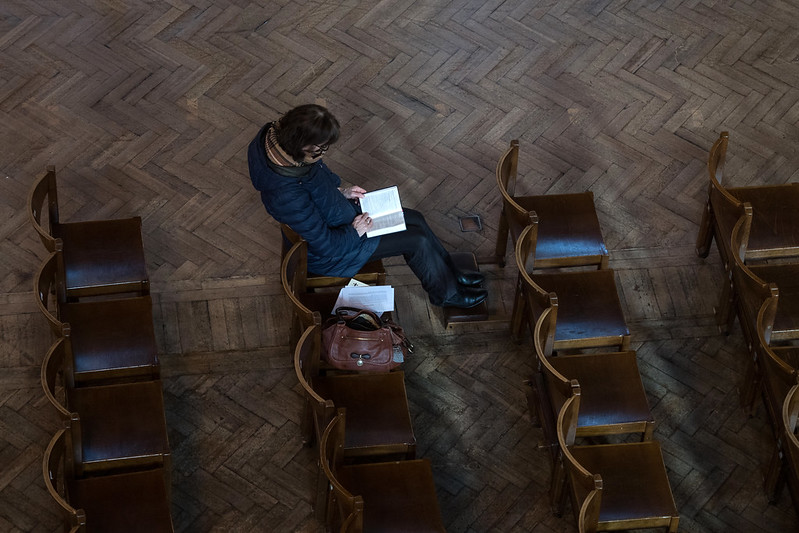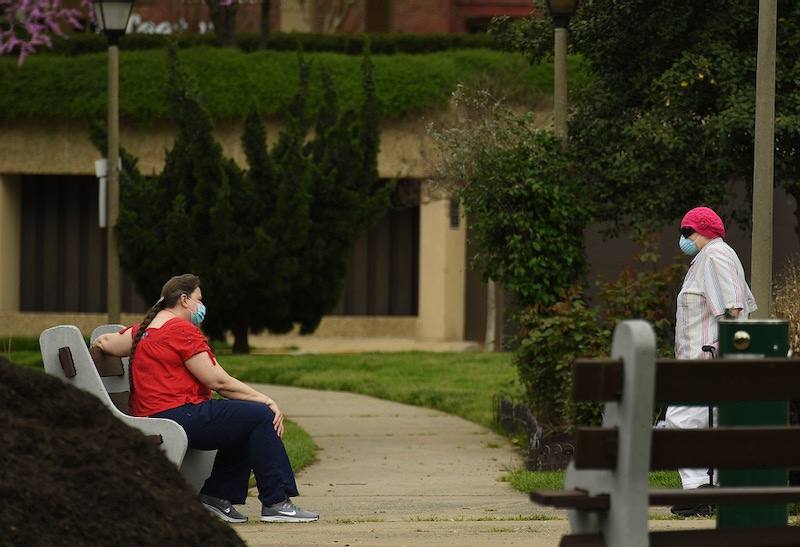Catholic charities that support people with existing healthcare issues such as HIV and AIDs have warned of the challenge that coronavirus poses to their physical and mental wellbeing.
Catholics for AIDS Prevention and Support (CAPS) said it was seeing an increased demand for its services and for pastoral care after thirty per cent of its membership was told to self-isolate for three months.
Dr Vincent Manning, chair of CAPS, told The Tablet a higher incidence of comorbid conditions, as well as higher levels of poverty, mental illness and social marginalisation, add to the vulnerability of the CAPS community.
“They are familiar with social, spiritual and psychological ‘isolation’ because of HIV stigma,” he said, but “the present conditions exaggerate this isolation in all its forms and we are detecting high levels of serious stress amongst several members whom we would not usually consider to be ‘psychologically fragile’”.
Brentwood Catholic Children’s Society has also warned of the impact of the lockdown on children with special health needs. Director Bernadette Fisher told The Tablet staff and therapists have received training in the use of Zoom to connect regularly with children, their families and schools. “Many of the families we work with have complex needs; the effects of being thrown together for prolonged periods in social isolation without the welcome distraction of school routines, regular meals, the companionship of peers and support of external agencies, means that many children and their carers are struggling, and their emotional health and wellbeing is suffering as a consequence”.
The charity does not receive state or diocesan funding. “At this time of unprecedented disruption to our charity’s fundraising calendar, never have donations from our community been more vital,” she said.
Bernadette Askins of Churches Together in South Tyneside reported that its befriending scheme for elderly people supports many with health problems. Some are sight or hearing-impaireed; others are amputees and wheelchair users; others are confined to bed and need a hoist to get up. Volunteers have helped a woman who was afraid of asking neighbours for help because of the virus to replace her hearing aid batteries, and have supported and delivered food for a woman recovering from cancer treatment.
The charities’ warning came as Cardinal Vincent Nichols led the Catholic community in prayer for healthcare workers and carers in the first in a series of livestreamed Masses for frontline medics and those who are sick.
"We thank them for their courage and generosity of heart which sustains their efforts. We salute their great commitment to their patients whom they serve so unselfishly,” he said.
"We pray also for those whose families include people with special and demanding needs, that within the confines of their homes this same courageous and generous spirit will be strengthened and sustained. We pray for those who are suffering with the effects of this dreadful virus, for those who have died and for their grieving families and friends."
The Masses, which will be livestreamed every Thursday at 7pm, are intended to coincide with the weekly “clap for carers”.
For most, "our part in this effort is so different", the Cardinal said, warning against any sense of self-pity among Catholics deprived of the Sacraments at this time. "Yes, deprivations are placed on us, including not being able, as yet, to return to our churches and Sacraments, a deprivation we feel very deeply indeed. Yet we beware of any sense of self-pity as we play our part in these life-saving disciplines."
"Frontline workers among the sick stand in a great and noble tradition. That tradition bears the hallmark of the Christian faith. Its characteristics of self-sacrifice and courage and its commitment to caring for all, especially for the poorest, sprang forth from the determination to follow the teachings of Christ who said that he is to be found, and served, especially in the poorest, the most needy and those least able to help themselves," the Cardinal said.
Last week the Centre for the Art of Dying Well at St Mary's University in Twickenham launched a new "deathbed etiquette" for the pandemic, described as "a different approach to 'being present' with a dying person" in situations where, owing to the contagiousness of the virus, it might not be possible to be physically present. The guidance says that being present virtually can be an appropriate option, and advised people to trust the doctors and nurses who would be there for the dying person, their friends and family.



 Loading ...
Loading ...